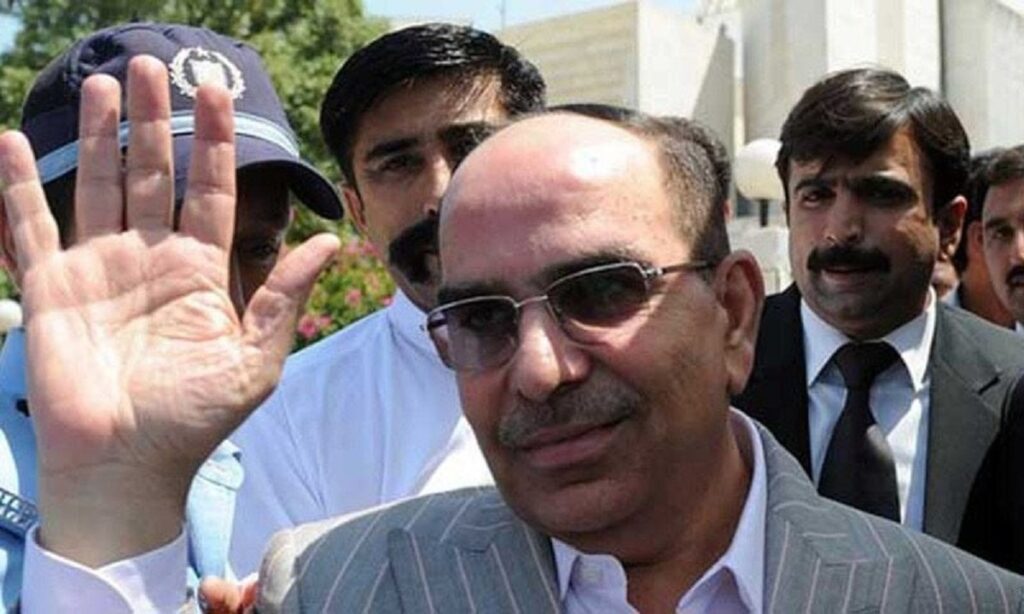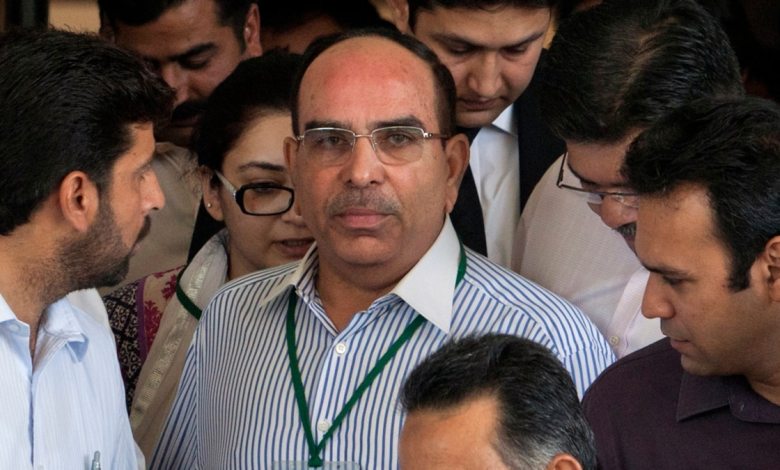LONDON: A UK court of appeal upheld a decision of the Home Office decision to cancel the 10-year multiple-entry visit visas of Bahria Town founder Malik Riaz and his son, Ahmed Ali Riaz, on the grounds that their expulsion from Britain is in public interest.
The Home Office decision to cancel their visas was taken after the top immigration body considered the National Crime Agency’s (NCA) investigation and settlement of £190 million with Mr Riaz in 2019; Supreme Court judgements concerning Bahria Town in May 2018 and March 2019; a Joint Investigation Team (JIT) report probing money deposited by Bahria Town into fake accounts and a National Accountability Bureau (NAB) reference filed in April 2019 linking Bahria Town to an investigation into Karachi Land Developments.

While rejecting the appeal, the UK court judgement notes that the conclusion of the Home Office that Mr Riaz and his son have been involved with corruption and financial/commercial misconduct was founded on their involvement in the affairs of Bahria Town — a company owned and run by the appellants’ family and described as the largest property developer in Asia.
Both the court and Home Office heavily relied on SC judgements and orders, NAB inquiries and the JIT report linked to Bahria Town, according to Dawn.com.
Mr Riaz and his son had held 10-year visit visas to the UK valid till July 28, 2021 and May 18, 2021, respectively. The Home Office cancelled the visas on December 10, 2019, a week after the NCA announced its probe and settlement with the Bahria Town founder.
In attempt to resolve a dispute before court proceedings are initiated, Mr Riaz’s lawyers filed a pre-action protocol (PAP) letter to the Home Office, which took a fresh cancellation decision against their visas on January 31, 2020.
Subsequently, they filed a judicial review application to the Upper Tribunal (Immigration and Asylum Chamber). A judicial review is a type of court proceeding in which a judge reviews the lawfulness of a decision made by a public body, in this case, the Home Office. On November 17, 2020, the tribunal dismissed Mr Riaz’s claim for a judicial review, and found no wrongdoing in how the Home Office made its decision about the visas’ cancellation.
Mr Riaz and his son then mounted an appeal on seven grounds in the Royal Courts of Justice that upheld the tribunal’s decision on the judicial review.
A detailed judgement outlining the grounds of appeal, the evidence considered by the Home Office as well as the decision taken to cancel the visas was published by the court on November 26.
UK’s Home Office decision and Immigration Law
The judgement features the letters written by the Home Office to Mr Riaz and his son informing them of the decision to cancel their visas.
One such letter reads, “…whilst there has not been a criminal conviction against you I am satisfied on the balance of probabilities that you have been involved with corruption and financial/commercial misconduct. As a result, having regard to the UKs commitment to combat corruption and financial crime, I believe that your exclusion from the UK is conducive to the public good due to your conduct, character and associations.”
The judgement notes that the conclusion of the Home Office that Mr Riaz and his son have been involved with corruption and financial/commercial misconduct was founded on their involvement in the affairs of Bahria Town.
According to the Home Office, an exclusion decision is a personal decision of the Secretary of State, on the ground that it is conducive to the public good. This means that it is undesirable to admit the person to the UK because they pose a threat to UK society.
The appellants’ visas were cancelled under V 9.1 and V 9.6 of Appendix V of the Immigration Rules read with paragraphs V 3.3. The Home Office rules note that a person does not need to have been convicted of a criminal offence for this provision to apply.










